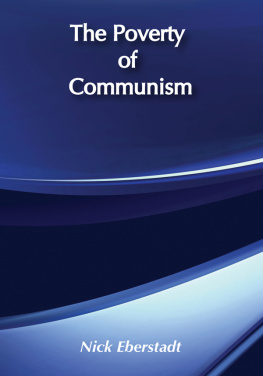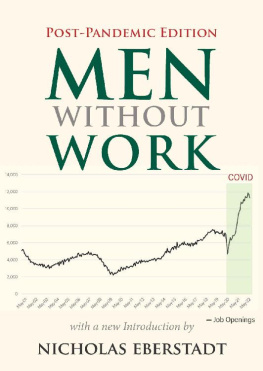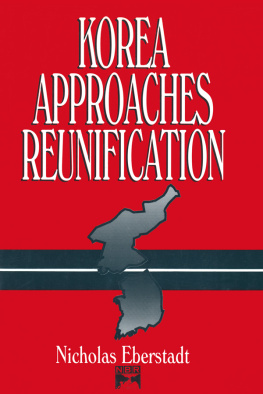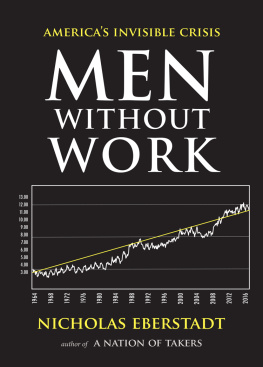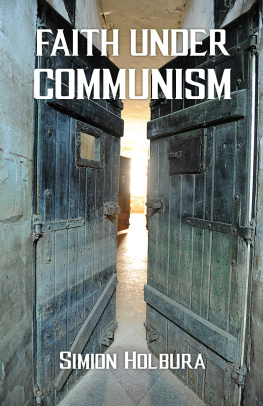The Poverty
of Communism
First published 1988 by Transaction Publishers
Paperback edition, 1990
Published 2017 by Routledge
2 Park Square, Milton Park, Abingdon, Oxon OX14 4RN
711 Third Avenue, New York, NY 10017, USA
Routledge is an imprint of the Taylor & Francis Group, an informa business
Copyright 1988 by Taylor & Francis.
All rights reserved. No part of this book may be reprinted or reproduced or utilised in any form or by any electronic, mechanical, or other means, now known or hereafter invented, including photocopying and recording, or in any information storage or retrieval system, without permission in writing from the publishers.
Notice:
Product or corporate names may be trademarks or registered trademarks, and are used only for identification and explanation without intent to infringe.
Library of Congress Catalog Number: 87-19097
Library of Congress Cataloging-in-Publication Data
Eberstadt, Nick, 1955
The poverty of communism.
Bibliography: p.
Includes index.
1. PoorCommunist countries. 2. Communist countriesEconomic conditions. 3. Communist countries Social conditions. I. Title. HC710.P6E24 1987 362.5091717 87-19097
ISBN 0-88738-188-X
ISBN 13: 978-0-88738-817-0 (pbk)
To my parents
Frederick and Isabel Nash Eberstadt
Contents
Most of the essays in this book were written on the premises of the Harvard University Center for Population Studies. Over the years that I have been associated with it, the Center has been a warm and welcoming home. It has been a generous home as well. For all my debts to the Center, I would be seriously remiss if I did not mention two in particular: to the Director of the Center, Professor David E. Bell, whose encouragement, interest, and support has done so much to make my work possible; and to Miss Ellen Hopkins, the Centers Administrative Assistant, whose assistance to meas she and I both knowhas been above and beyond the call of duty, year in and year out.
Several of the essays in this book were written on the premises of the American Enterprise Institute for Public Policy Research, which has provided me with a friendly and obliging base from which to conduct research in Washington. Michael Novak, Director of AEIs Social Policy Program, and Douglas J. Besharov, Director of its Project on Individual and Social Responsibility, have not only seen to it that AEIs considerable institutional amenities and support be available to me, but have vigilantly, even jealously, checked to make sure that my time would always be my own. A scholar cannot ask for greater luxury.
The Esther A. and Joseph Klingenstein Fund provided the grant which made possible the preparation of this book. For its timely and generous support, I owe the Klingenstein Fund a special thanks.
Kerstin Rios typed and processed the manuscript for this book. Unlike gems, her work is nearly flawless.
Understanding, And Misunderstanding, Soviet Poweris much the better thanks to Mary Tedeschi. So is my entire life.
The Cost of Pax Sovieticawas co-authored by Mr. Thomas E. Ricks, now of the Wall Street Journal. He has kindly permitted me to reprint our work on this volume. For so dear and trusted a friend, this formal mention of his contribution, while surely necessary, is also far from sufficient.
The final acknowledgement is due another dear friend, John Podhoretz, who suggested the title for this book.
Poverty has always been a matter of concern; today, however, it is also a matter of state. To a degree never before witnessed, contemporary regimes are held to be accountable for the material circumstances of, and prospects for, their subjects and citizens. In the international arena, the issue of poverty has come to be ever more central a feature in the ideological conflict between states. Today, in fact, a governments record in dealing with poverty is widely understood to reflect upon its very legitimacy: its right, in other words, to be a government at all.
What accounts for the remarkable rise of poverty within the hierarchy of political considerations? In both corridors of government and international fora, there is today increasing talk about human rights. Yet to ascribe the growing attention toward poverty to a presumed triumph of humanitarian sentiment on the part of modem man would seem ill-advised, if not perverse. In recent memoryand at this writingpestilential programs have been methodically inflicted upon hapless populations in various corners of the world by the established authorities presiding over them. These same authorities, more often than not, have fashioned themselves to be the most modern of states, and have proclaimed most vocally their commitment to the cause of human rights.
For all the benefits which enlightened rule may today in many places confer, we should not assume that the masters of men in earlier and less scientific times were always ignorant of, or insensate to, the suffering of the poor. In the days when religious belief played a greater role in personal life and affairs of state than it seems at present to do, uncharitable behavior was widely understood to expose mortals to the perils of eternal judgment. Political power may typically have been unaccountable in earlier times, but the rulers wielding it were not infrequently God-fearing men, and the God-fearing man knows an ultimate accountability in the contemplation of the fate of his own soul.
Heightened political attention to poverty owes less to improvements in moral fiber or perfection of governmental institutions than to major changes in the factors which affect state power. Many factors might be mentioned: among them, the advent of total war and its attendant requirements of mobilization, must surely figure prominently. But perhaps no factor has been so important as the birth of the Marxist-Leninist state. For the Marxist-Leninist state was a fundamentally new form of government, and it presumed a fundamentally new correspondence between the power of its apparatus and the poverty of populations. To an extent that may not be fully understood, the emergence of poverty as an issue in international politics, and the dimensions this issue has assumed, may be traced to the stimulus of the Marxist-Leninist state.
At once messianic and materialistic, the Marxist-Leninist state claimed to possess the understanding necessary for the creation of an earthly paradise, and demanded the total authority over its subjects that was said to be needed for the monumental transformations envisioned. The elimination of exploitation and material deprivation was integral to the Communist vision which the Marxist-Leninist state sought to incarnate. Far-reaching exertions and sacrificesincluding the total sacrifice of libertywere required of every population under Marxist-Leninist authority, and were justified by the material achievements the new order was producing, or would produce. All-embracing state machines were erected, and ambitious social experiments involving hundreds of millions of human beings were pressed forward, in the name of progress against poverty. Marxist-Leninist states claimed special successes against poverty, and challenged the moral authority of any and all political orders that were said to be less beneficial than their own to the poor and the vulnerable in other places.
Seventy years have passed since the October Revolution, sixty-five since the establishment of the Soviet state over Russian soil. In the interim, Marxist-Leninist states modeled closely upon the Soviet original have been established over a widening expanse of territory. In the mid-1980s, perhaps a third of the population of the earth lived under regimes adhering by their own profession to the precepts of Marxism-Leninism. It is not premature to inquire about the fate of the poor in these places. This book is an attempt to help answer such inquiries.

